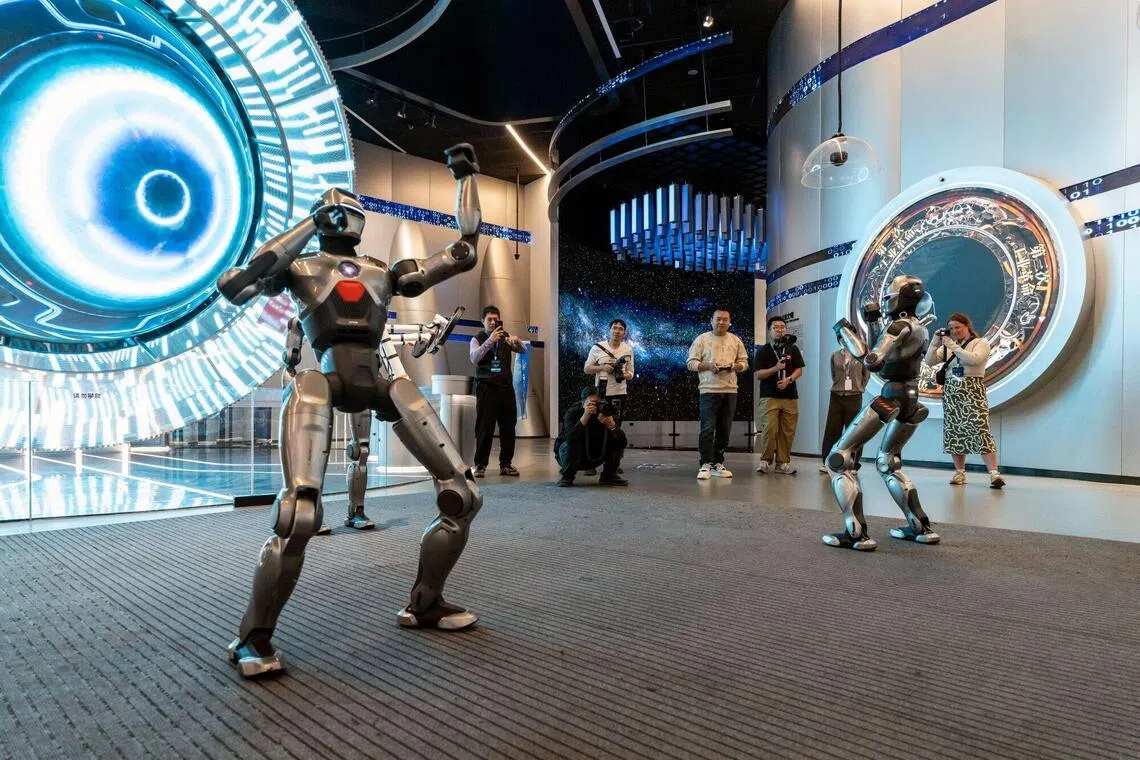China says humanoid robot buzz carries same bubble risk as AI
Sign up now: Get insights on Asia's fast-moving developments

Humanoid robots perform at the Shenzhen Science and Technology Museum on Nov 26.
PHOTO: BLOOMBERG
BEIJING – More than 150 Chinese companies are making humanoid robots, but a market bubble risks forming in the rapidly growing futuristic industry, a Beijing official has warned.
Government support and strong supply chains are helping Chinese firms push ahead in the race to develop AI-powered robots that could one day help perform everyday tasks.
But the sector risks overcapacity as production scales up quickly without actual orders, Goldman Sachs warned recently.
On Nov 27, Chinese official Li Chao told a National Development and Reform Commission briefing: “‘Speed’ and ‘bubble’ have always been issues that need grasping and balance in the development of frontier industries.”
She added that “the same goes for the humanoid robot industry” in response to a question about the bubble concerns.
It mirrors wider fears of a market crash
“In recent years, driven by innovation and increased demand, humanoid robotics representing the scale of the embodied intelligence industry is seeing explosive growth,” Ms Li said.
But the sector is not yet mature in terms of technology, commercialisation or use, she cautioned.
More than half of China’s 150 humanoid robot companies – a figure still increasing – are “startups or ‘cross-industry’ entrants, which is a good thing for innovation”, Ms Li said.
“But we must also be vigilant in preventing products that are highly repetitive from ‘gathering’ in the market, squeezing research and development space and other risks,” she added
An April report published by Leaderobot, a specialist consulting firm, predicted that China’s humanoid robotics industry would reach 82 billion yuan (S$15 billion) in 2025, accounting for half of global sales.
Large-scale real-life use cases remain elusive, but ambitious trials have grabbed headlines.
A robot made by Shanghai’s AgiBot set a Guinness World Record in November for the longest reported distance ever walked
Beijing also hosted the world’s first-ever humanoid robot games in August, where more than 500 “athletes” vied in disciplines ranging from basketball to competitive cleaning. AFP


